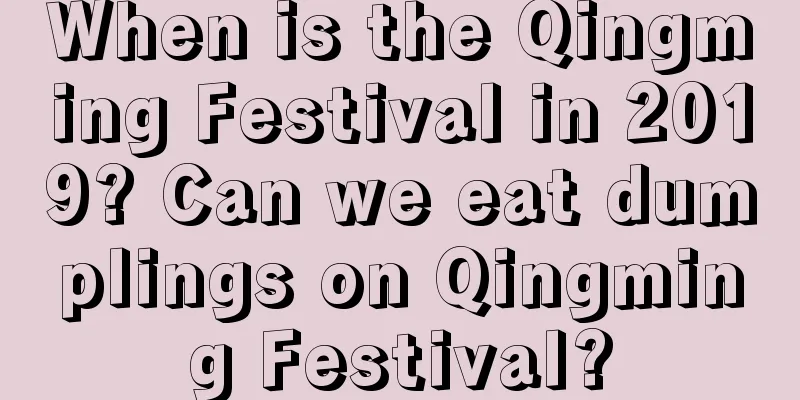Is it good to get married on the Double Ninth Festival in 2020? What do people do on this day according to tradition?

Introduction: Marriage is one of the important matters, so it is necessary to choose an auspicious day for marriage. So is it a good idea to get married on the Double Ninth Festival in 2020? What do people do on this day according to tradition? The ninth month of the lunar calendar is a golden season, with plump rice and red persimmons. Shuimoxiansheng.com’s 2020 ninth month of the lunar calendar special topic will take you to harvest the beauty.Is it a good idea to get married on Double Ninth Festival in 2020?Lunar calendar: September 9, 2020 Gregorian calendar: October 25, 2020, Sunday, Scorpio》》》What is suitable for today (do not use it on important occasions) Marry, accept money, open business, prepare food, pray for offspring, seek wealth, take up a post, remove construction, start construction, govern the way 》》》Today's taboos (do not use it on important occasions) Breaking the ground, building embankments, releasing water, relocating people, raising beams, burying people, erecting pillars, offering sacrifices and praying for blessings, planting, digging canals, setting up beds, building beds, burying people, moving coffins, starting drilling, opening warehouses, bringing in livestock, buying property, collecting money, entering houses, meridians According to the old almanac, the Double Ninth Festival in 2020 is not suitable for getting married, because this day is an unlucky day for red gauze, so don't use it for important events! What do people traditionally do on this day?Traditional customs of the Double Ninth Festival: Ancestor worshipThe Double Ninth Festival is one of the four major traditional Chinese festivals for ancestor worship. In ancient times, people had a tradition of worshiping their ancestors and praying for blessings. The traditional custom of ancestor worship on the Double Ninth Festival is still popular in the Lingnan area, and people hold ancestor worship activities on the Double Ninth Festival every year. Whether it is ancestor worship or climbing high to look into the distance, its most fundamental function is to enhance people's cultural identity and strengthen the cohesion of family and society. Traditional customs of the Double Ninth Festival: climbing high The custom of climbing heights on the Double Ninth Festival has a long history. In ancient times, people had the custom of climbing heights on the Double Ninth Festival, so the Double Ninth Festival is also called the "Climbing Festival." The custom of climbing mountains on Double Ninth Festival originated from the climatic characteristics of this time and the ancient people's worship of mountains. Climbing high to "bid farewell to the green" also originates from the solar terms in nature. Climbing high to "bid farewell to the green" on the Double Ninth Festival corresponds to the ancient people's spring outing in March. According to historical documents, the custom of "climbing mountains to pray for blessings" was already popular during the Spring and Autumn Period and the Warring States Period. There is no uniform regulation on the place of climbing. The places to be climbed can generally be divided into climbing mountains, climbing buildings, or climbing platforms. There are four main reasons for the custom of climbing high mountains: first, it comes from the ancient people's worship of mountains; second, it comes from the climate of "clear air rising and turbid air sinking"; third, it comes from climbing high to "say goodbye to green"; and fourth, it comes from an absurd legend that "Huan Jing climbed the mountain to avoid disaster." Traditional customs of the Double Ninth Festival: eating Chongyang cake According to historical records, Chongyang cake is also known as flower cake, chrysanthemum cake and five-color cake. There is no fixed method to make it and it is rather casual. At dawn on September 9th, people would place a piece of cake on their children’s foreheads and chant something, wishing their children success in everything. This was the original intention of the ancients making cakes in September. The elaborate Double Ninth Festival cake is made into nine layers, like a pagoda, with two lambs on top to match the meaning of Double Ninth Festival (sheep). Some people also put a small red paper flag (instead of dogwood) on the Chongyang cake and light candles. This probably means using "lighting lamps" or "eating cakes" instead of "climbing high". There is still no fixed variety of Chongyang cake today. The soft cakes eaten on Chongyang Festival in various places are all called Chongyang cake. Traditional customs of the Double Ninth Festival: flying kites Flying kites is one of the main customs of the Double Ninth Festival in the South. The main feature of the Double Ninth Festival among the people is flying kites. The Guangxu "Huizhou Prefecture Records" also recorded this. In folk tradition, in addition to climbing mountains, flying kites is also a special feature of the Double Ninth Festival. As for why people fly kites during the Double Ninth Festival, in addition to the climatic reasons that the sky is high and the clouds are light, the wind is light and the sun is bright, so kites can easily fly up with the wind, there are also some other explanations that are quite interesting. Legend has it that flying kites during the Double Ninth Festival is to "drive away bad luck". The higher and farther the kite flies, the farther the bad luck will fly away with it. Some people even deliberately cut the string to make the kite disappear into the sky. Another explanation is that flying kites on the Double Ninth Festival is to "release good luck" and "release blessings". The better the kite flies, the greater the blessing. The kite flyer must not only not break the silk thread, but also do everything possible to protect it, because if the silk thread breaks, the "good luck" and "blessings" will also float away. Traditional customs of the Double Ninth Festival: worshiping the sea god The Double Ninth Festival is a major autumn festival. Hong Kong, Macao, Taiwan and other places attach particular importance to the activities of worshiping the god of the sea held on this day. Traditional customs of the Double Ninth Festival: appreciating chrysanthemums There has always been a custom of appreciating chrysanthemums on the Double Ninth Festival, so it has also been called the Chrysanthemum Festival in ancient times. The custom of appreciating chrysanthemums originates from chrysanthemum culture. Chrysanthemum is a natural flower. Because of its colorful flowers and the fact that it blooms in defiance of frost, a chrysanthemum culture of appreciating and praising it has been formed. Since the Three Kingdoms and Wei and Jin Dynasties, it has become a fashion to gather together on the Double Ninth Festival to drink, appreciate chrysanthemums and write poetry. In ancient Chinese customs, chrysanthemums symbolize longevity. Chrysanthemum is a flower of longevity and is praised by writers as a symbol of unyielding spirit in the face of frost. Traditional customs of the Double Ninth Festival: Saying goodbye to Qing The ancients often regarded Double Ninth Festival and Shangsi (or Qingming Festival) as corresponding major festivals in Spring and Autumn. If Shangsi is a festival for people to go out and stroll after a long winter, then Chongyang is an autumn outing with ritual significance when the autumn chill arrives and people are about to retire. Therefore, there is a folk custom of "going out for a walk" on Qingming Festival and "saying goodbye to the cold" on Chongyang Festival. Traditional customs of the Double Ninth Festival: drinking chrysanthemum wine Drinking chrysanthemum wine: Due to its unique qualities, chrysanthemum has become a symbol of vitality. Chrysanthemum contains nourishing ingredients. In the Baopuzi written by Ge Hong of the Jin Dynasty, there is a record that people in the mountains of Nanyang lived longer by drinking Gangu water which was full of chrysanthemums. Drinking chrysanthemum wine on the Double Ninth Festival is a traditional Chinese custom. In ancient times, chrysanthemum wine was regarded as an "auspicious wine" that must be drunk on the Double Ninth Festival to ward off disasters and pray for blessings. Chrysanthemum wine is a medicinal wine with a slightly bitter taste. Drinking it can improve eyesight and refresh the mind, and it also has the auspicious meaning of warding off disasters and praying for blessings. Chrysanthemum wine has been seen since the Han Dynasty. Later, there were still stories about giving chrysanthemums as birthday gifts and making wine with chrysanthemums. For example, Emperor Wen of Wei, Cao Pi, once gave chrysanthemums to Zhong Yao on the Double Ninth Festival (to wish him a long life). Emperor Jianwen of Liang wrote in "Picking Chrysanthemums" the line "We called each other to pick chrysanthemum beads with baskets, and the morning dew wet our silk clothes", which is an example of picking chrysanthemums to make wine. Chrysanthemum wine was still popular until the Ming and Qing Dynasties. It was still recorded in Gao Lian's "Eight Notes on Living a Healthy Life" in the Ming Dynasty, and it was a popular health drink. Traditional customs of the Double Ninth Festival: Wearing dogwood In ancient times, it was a custom to insert dogwood on the ninth day of the ninth month, so it is also called the Dogwood Festival. Cornus officinalis is a fruit that can be used as a traditional Chinese medicine. Because the cornus officinalis produced in Wu and Yue (now the Jiangsu and Zhejiang areas) is of the best quality, it is also called Evodia rutaecarpa. The ancients believed that climbing mountains and inserting dogwood on the Double Ninth Festival could repel insects, dampness and wind evil. So people wore dogwood on their arms, ground it into powder and put it in sachets, or inserted it on their heads. Most of them are worn by women and children, and in some places men also wear them. Cornus officinalis can be used as medicine to make wine to nourish the body and cure diseases. Inserting dogwood and wearing chrysanthemums in the hair were already very common in the Tang Dynasty. Cornus officinalis has a strong fragrance and has the effects of improving eyesight, refreshing the brain, removing heat, repelling insects, removing dampness, and expelling wind evil. It can also eliminate food stagnation and treat cold and heat. Ancient customs such as inserting dogwood are behaviors that people engage in while climbing mountains to ward off evil spirits. On the Double Ninth Festival, clear air rises and turbid air sinks. People use natural medicines such as dogwood to adjust their physical health and adapt to natural climate changes. The Eight Characters are an important matchmaker in your life, revealing your marriage destiny and predicting your marital happiness! To calculate the direction of your personal marriage, you can click on the "Premium Calculation" below to predict your marriage in advance. I wish you a happy marriage! |
Recommend
Is it okay to sign the contract on the tenth day of the third lunar month in 2022? Is it an auspicious day to sign the contract?
The tenth day of March is a day in the third month...
What's your zodiac sign if you were born in the sixth month of the lunar calendar? Introduction to the zodiac signs for people born in the sixth month of the lunar calendar in 2021
Speaking of what we want to do, I believe everyone...
Is May 14, 2020 a suitable day to install a bed? Analysis of the Feng Shui do’s and don’ts for installing a bed!
Introduction: It is generally necessary to choose ...
Is the Frost Descent a good day in 2021? What does Frost Descent mean?
The quality of days is different every day. Some d...
Is March 22nd of the lunar calendar 2022 a good day to start work? Is it an auspicious day?
The third month of the lunar calendar is the month...
Is it good for people to be born on May 19th, 2019, during the summer solstice?
The summer solstice is the earliest solar term to ...
Can I register for a marriage certificate on the Spring Equinox in 2018? Is it okay to get the certificate on the Spring Equinox?
Introduction: Registering for a marriage certifica...
Is the 16th day of the first lunar month in 2022 suitable for moving? Is it an auspicious day?
Silver willows are inserted into the vase heads, a...
Is March 17th of the lunar calendar in 2020 a suitable date to move to a new home? Is it a good day?
There are auspicious days and inauspicious days. ...
The eighth day of the eleventh lunar month in 2018 is a good day?
Shui Mo Xiansheng website has carefully compiled ...
April 18, 2020 - Is it a good idea to open the day before Grain Rain? Grain Rain blessings recommended!
Introduction: Generally, you have to choose an aus...
What day is July 27th in the lunar calendar 2019? How to choose an auspicious day
As I go by day after day, I just sigh that time p...
Is December 26th of the twelfth lunar month in 2021 an auspicious day to start work?
The twelfth month of the lunar calendar is the end...
Is it a good day to travel during the Lesser Heat on July 7, 2019? What does Lesser Heat mean?
Introduction: The days of Minor Heat can also be a...
What festival is on the 27th day of the twelfth lunar month in 2021? What can we do and what are the customs?
At the end of the twelfth lunar month, the countdo...









